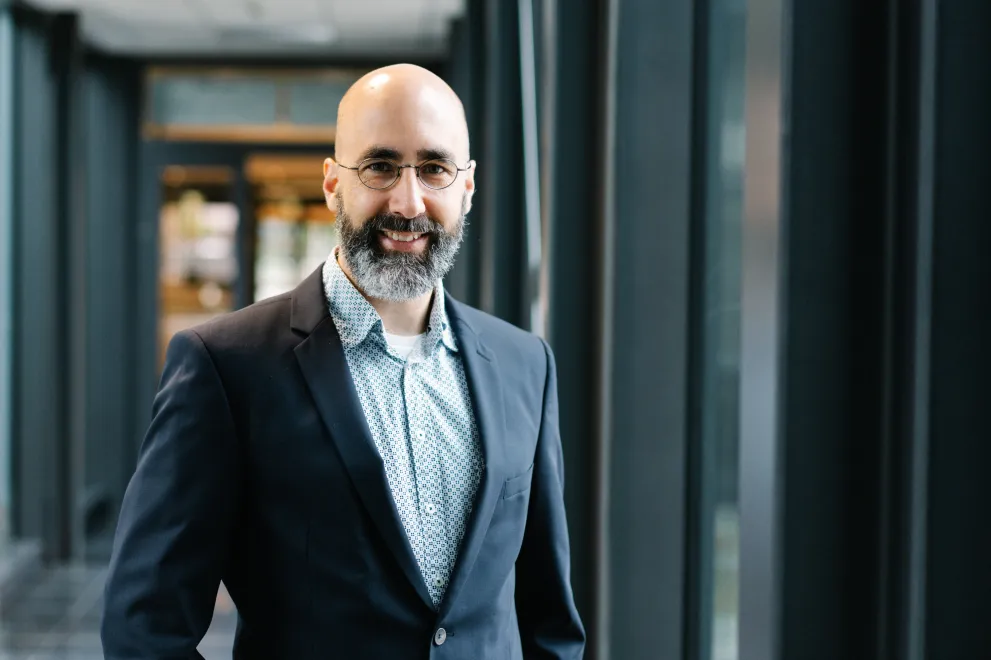The Heisenberg Program of the German Research Foundation enables outstanding scientists who meet all the requirements for appointment to a long-term professorship to prepare for a scientific leadership position and to work on their own research topics during the funding period.

Heisenberg Professorship
Professor Christopher Kyba
Professor Christopher Kyba has been awarded a Heisenberg Professorship in 2025. He researches the Earth from afar.
After completing a bachelor's degree in physics at the University of Alberta, Christopher Kyba received his doctorate from the University of Pennsylvania in 2006. He then worked as a postdoc at the Department of Radiology at the University Hospital there and moved to the Freie Universität Berlin as a research associate in 2009. from 2013 to 2014, he was a research associate at the Leibniz Institute of Freshwater Ecology and Inland Fisheries, from 2014 to 2024 a research associate at the GFZ Helmholtz Center for Geosciences and between 2022 and 2024 a research associate at the Ruhr University Bochum. On October 1, 2025, he came to RUB with a Heisenberg professorship.
Gathering information from observations of nocturnal lights - that is Christopher Kyba's specialty. In his case, much of the data comes from satellite images. A lot of information can be obtained from them; for example, the lighting provides information about human activities, the prosperity of the population and much more. This data can be used, for example, to track population development or the development of gross national product, with better spatial resolution than is possible with traditional methods, and also in countries that do not collect or share this data.
The researchers currently obtain the necessary images from space primarily via two satellites: one from the US and one from China. The US satellite takes images of the entire surface of the earth every night - albeit in poor resolution. The Chinese satellite provides better resolution and better color information, but only records small parts of the Earth. Christopher Kyba therefore dreams of an ultra-modern, very sensitive European satellite for night-time light observation.
In addition to satellite exploration, Kyba also relies on the participation of non-scientists. He has already received awards for his citizen science projects. He hopes to launch further citizen science projects in the coming years.
